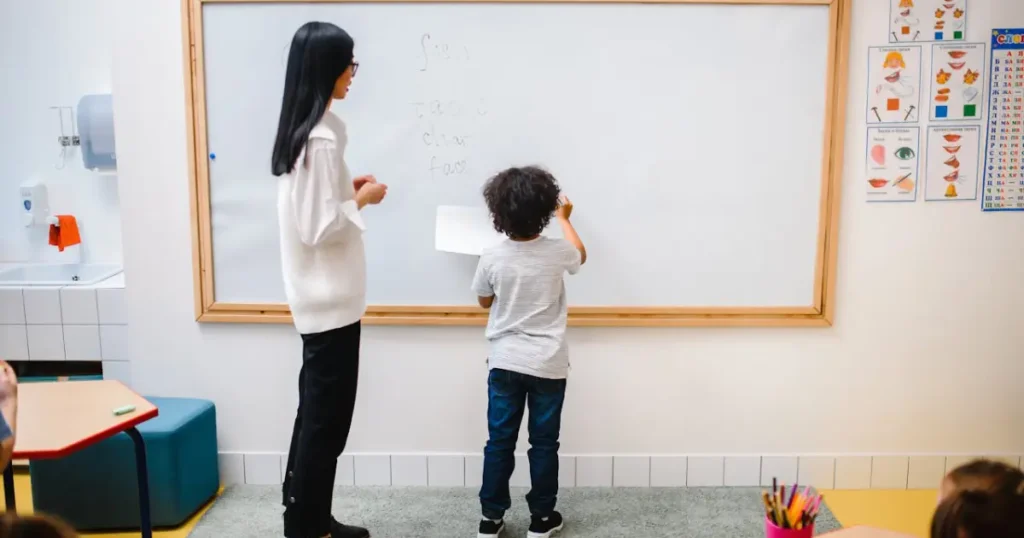
I’ll be sharing cool stuff about how kids can get better at English every single day!


There are four main skills your child will develop as they learn English. These skills will work together to help them become confident communicators:
Reading is a key part of language learning and opens the door to so many possibilities. As your child learns to read, they’ll:
In our detailed blogs, we provide guidance on selecting age-appropriate books, building reading habits, and creating a fun, supportive reading routine.
Writing helps children express their thoughts, ideas, and feelings. From early mark-making to writing full sentences, this skill is crucial for their development. You can help your child by:
I’ll provide you with tips on how to support your child’s writing at home and activities that make writing enjoyable.
Speaking is one of the most engaging aspects of language learning. As your child practices speaking in English, they’ll:
I’ll share fun speaking activities to help your child practice, whether they’re talking to you, playing with friends, or engaging in role-play games.
Listening is the foundation of communication. The more your child listens to English, the better they’ll understand it. This can be done through:
We’ll explore ways to develop your child’s listening skills in a playful, relaxed way.

Learning English doesn’t have to be boring or difficult. In fact, it’s often best when it’s part of everyday fun! Here are some ideas for making the process enjoyable:
Kids love games, and they’re a fantastic tool for learning English. From word search puzzles to memory games, language games help your child build vocabulary and reinforce concepts while having fun.
Songs are a wonderful way for children to learn new words and practice pronunciation. Singing along to simple English songs helps kids remember words and phrases in a fun, musical way.
TV shows and cartoons are great for exposing kids to spoken English. Choose age-appropriate content that’s easy to understand. Many children’s shows are designed to teach vocabulary and grammar in a natural, entertaining way.
Picture books are ideal for young readers. They combine engaging illustrations with simple text, helping children understand and remember new words. Plus, reading aloud together is a wonderful bonding activity!
There are many educational apps and websites designed to make learning English interactive and fun. These resources offer games, videos, and activities that keep children engaged while they learn.

As a guardian or teacher, you play an essential role in your child’s English learning journey. Here are a few tips to make the process smoother: